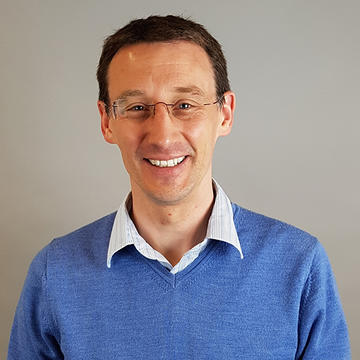David Tew

Professor David Tew
Associate Professor of Theoretical Chemistry
In the Tew group we develop theoretical methods for understanding chemistry through computer simulation. Our focus is on gaining a deeper understanding of the nature of quantum many-body correlation and on translating that understanding into better numerical methods for solving the equations of quantum mechanics that govern chemical phenomena. We are particularly interested in developing methods that are highly accurate and therefore quantitatively predictive, but at the same time scalable to large, complex systems, so that we can use computer simulation to help solve real-world chemical problems.
Electronic Structure
We develop approaches for computing highly accurate electronic energies and properties by improving the level to which many-body correlation is accounted for in the electronic wavefunction. We are especially interested in the coupled-cluster family of methods, which have the correct product structure, and are working on methods for extending the range of applicability of coupled cluster theory. Some of the approaches we are pursuing include explicitly correlated methods that satisfy the exact electron-electron coalescence conditions and directly model the correlation hole, and local approximations that exploit the short-range nature of electron correlation. Together, these approaches reduce both the scaling and prefactor of the computational cost of these highly accurate methods for computing electronic energies. We also develop efficient computer implementations within the Turbomole program suite, which is released to the community as a computational tool for chemical investigation.
Molecular Dynamics
In the Tew group we also develop methods for simulating molecular dynamics at the level of quantum mechanics. We are particularly interested in fluxional behaviour where quantum tunnelling plays a central role in the dynamics and rovibrational eigenstates. We apply both variational and stochastic techniques and are pursuing methods that encode the strong correlation among the atomic motions in the choice of curvilinear coordinates used to express the dynamics. We also develop machine learning approaches that enable us to construct analytic potential energy surfaces that closely fit highly accurate data from electronic structure calculations.
Quantum Computing
The quantum community is making significant strides in quantum information and quantum engineering and a variety of devices have emerged capable of performing computations using the laws of quantum mechanics, albeit on a small number of qubits at present. Such devices hold great promise for future simulations of quantum systems and may form an integral part of computing capability in the future. We are exploring ways of mapping quantum chemistry problems onto quantum architectures both for analogue and qubit quantum computing.
Associated research themes:
David Tew is an Associate Professor of Theoretical Chemistry and Tutorial Fellow of St Hilda's college. He works on theoretical methods and computational software for understanding and predicting chemistry through computer simulation, and collaborates with theory and experimental groups around the globe. He moved to Oxford in 2020, having previously been a Senior Scientist in Prof. Alavi's Electronic Structure Department of Max Planck Institute for Solid State Research, Stuttgart. He studied for his undergraduate degree at Trinity College Cambridge, where he also obtained his PhD in 2003, under Prof. Handy. He was a Marie-Curie Fellow (2005-2007 with Prof. Klopper, Karlsruhe) and a Royal Society University Research Fellow (2009-2017, Bristol). He is one of five stakeholders in Turbomole GmbH, sharing oversight and responsibility for this international collaborative software initiative.




